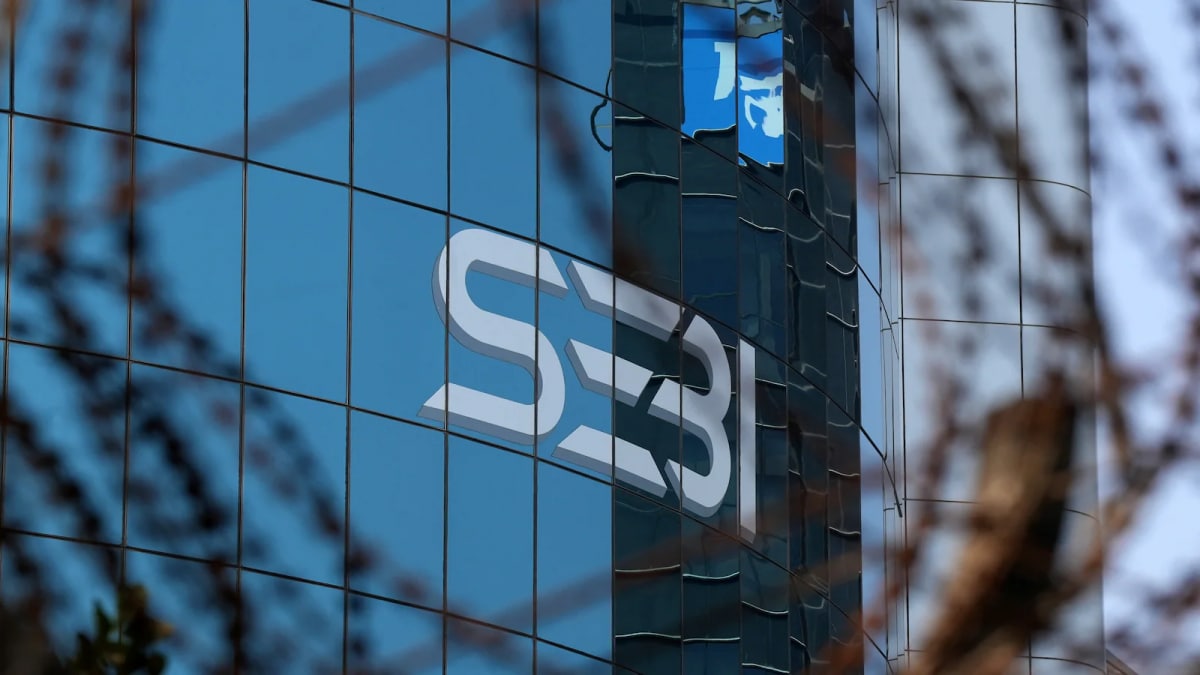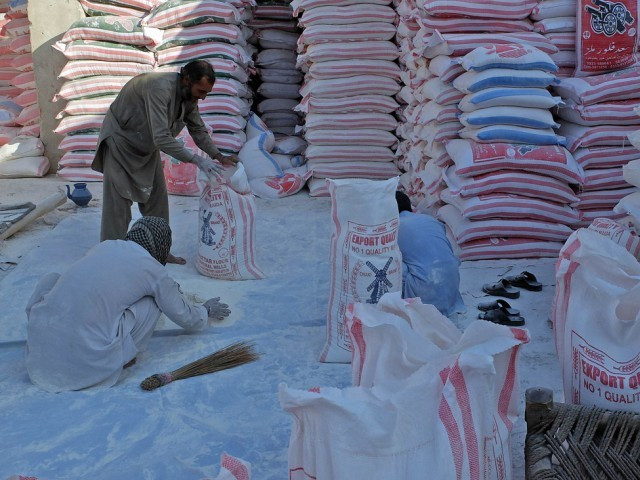Business
Floods to famine: how 2025 could trigger economic crisis | The Express Tribune

LAHORE:
Pakistan is staring down the barrel of a food security emergency that could ripple through every layer of its economy. The catastrophic monsoon floods of 2025 have submerged vast swathes of the country, from Punjab’s wheat belt to Sindh’s rice-growing districts and parts of Khyber-Pakhtunkhwa.
Over 2,000 villages have been inundated, displacing millions, wrecking farmland, and wiping out critical infrastructure just as the summer harvest reached its peak.
The destruction is staggering. Entire standing crops of wheat, cotton, rice, maize, and sugarcane have been destroyed. In Punjab alone, 80% of the country’s wheat production is now at risk. Sindh’s rice fields and fodder supplies are underwater, while Khyber-Pakhtunkhwa has lost tens of thousands of acres of maize and vegetables.
Livestock losses are mounting, with fodder destroyed and surviving cattle starving. Farmers are reporting personal losses in the millions, collectively wheat farmers alone have seen over Rs2.2 trillion wiped out since last year.
The ripple effects are already visible in markets nationwide. In Lahore, Karachi, and Peshawar, staple food prices have spiked 30% to 70%, with shortages of vegetables, milk, and meat now commonplace.
For urban consumers, the pinch is immediate and painful. For rural producers, the pain is existential, as fields, homes, livestock, and seed stores have been swept away.
Tens of thousands of families now live in makeshift camps, with their livelihoods gone and no clear path to recovery. If left unsupported, millions risk falling below the poverty line, a repeat of the 2022 floods which pushed nine million Pakistanis into poverty, according to World Bank estimates.
The economic stakes are immense. Agriculture contributes 24% of Pakistan’s GDP and employs 40% of the workforce. The loss of this year’s harvest will not just hurt farmers; it will force Pakistan to import vast quantities of wheat, vegetables, and cotton, straining foreign exchange reserves and driving up the import bill.
At the same time, export earnings will collapse as rice and cotton surpluses disappear. This dangerous combination, higher imports and falling exports, threatens to widen the current account deficit and weaken the rupee.
Inflation, which had eased to 4.1% in July 2025 after painful reforms, is now set to surge again. Government officials are bracing for food inflation to return to double digits by October, with shortages of wheat and fresh produce driving price shocks. Urban and rural consumers alike will feel the squeeze, and political tensions are certain to rise as household budgets buckle under the pressure.
The floods also pose a fiscal nightmare. Relief and reconstruction costs will run into hundreds of billions of rupees, forcing the government to divert funds from other priorities or take on new debt. Under an IMF programme, fiscal space is already limited. Every rupee spent on relief is a rupee not spent on development, creating a vicious cycle of stagnation and instability.
Making matters worse, policy missteps have amplified the crisis. At the very moment when Pakistan needed stability and strategic reserves, the government moved to dismantle Passco, the only institution capable of safeguarding emergency wheat stocks and stabilising prices. Passco’s warehouses, which once held two million tons of grain, are being liquidated under IMF dictates.
Simultaneously, the abolition of the Utility Stores Corporation has stripped millions of poor households of access to subsidised food. This has left farmers at the mercy of profiteering cartels and consumers defenseless against runaway inflation.
The World Bank’s latest report warns that climate shocks are now the single biggest threat to Pakistan’s macroeconomic stability. Floods are no longer rare, one-off events, they are recurring economic shocks that depress growth, widen deficits, and push millions into poverty. The 2025 disaster is a textbook case – rising inflation, mounting imports, shrinking exports, and deepening social instability.
There are still steps that can prevent a slide into famine. Emergency imports of wheat and vegetables, temporary price controls, and targeted cash transfers to vulnerable families can stabilise the situation in the short term. Equally critical is direct support for farmers – seeds, fertiliser, and credit must be provided immediately so the upcoming Rabi winter wheat crop is not lost. Without this, Pakistan will face even deeper import dependency and food insecurity in 2026.
Longer term, Pakistan must finally invest in climate resilience. Flood defences, drainage systems, climate-smart seeds, and reliable strategic reserves are not luxuries; they are necessities for national security. As the World Bank notes, economic planning must now treat climate volatility as a core structural challenge, not a peripheral issue.
The 2025 floods are not just another disaster. They are a stark warning. If Pakistan does not act decisively, this year’s tragedy will not only wash away crops and homes, it will erode the very foundations of our economy and leave the nation vulnerable to the next inevitable shock.
The writer is a graduate of the University of British Columbia
Business
From Fraud Checks To Faster Settlements, SEBI Whole-Time Member Lists Recent Market Reforms In India

Last Updated:
‘There are some initiatives that we have taken to protect investor interest, to develop market, to deepen market integrity, that no other country has done’: Sebi Whole-Time Member.


SEBI Check Tools to Fight Fake Apps and Payment Frauds.
India’s capital market systems are emerging as global benchmarks in settlement speed, investor protection and technology-led regulation, SEBI Whole-Time Member Kamlesh Chandra Varshney said, outlining a series of structural and digital initiatives aimed at strengthening market integrity and transparency.
Speaking at the News18 Rising Bharat Summit, Varshney said several of India’s reforms were implemented ahead of other major economies and are now drawing international attention. “We can proudly say that there are some initiatives which we have taken to protect investor interest, to develop market, to deepen market integrity, which no other country has done. After we have done that, other countries are taking steps,” he said.
India Ahead on Settlement Speed
Varshney highlighted India’s early adoption of T+1 settlement — where trades are settled within one day — noting that the country introduced it before the United States. He added that regulators are already experimenting with T+0 settlement, which would further shorten the time between trade execution and final settlement.
“We were the first country to have T+1 settlement. Only after us did the US move to T+1 settlement. By the time they did that, we were experimenting with T+0 settlement,” he said, adding that faster settlements improve efficiency and reduce opportunities for manipulation.
Client-Level Safeguards After Past Broker Failures
Referring to a past case in which a broker pledged client securities with banks and later went bankrupt, Varshney said such incidents showed the need for stronger safeguards to ensure investors do not suffer losses due to intermediaries’ actions.
SEBI responded by introducing a technology-driven pledging and re-pledging framework that keeps securities in the investor’s account even when used as collateral. It also implemented systems for upstreaming of funds and direct payout of securities, ensuring transactions move directly between clearing corporations and client accounts instead of passing through brokers.
“This kind of system is nowhere in the world,” he said, adding that India’s clearing corporations have full client-level visibility, unlike the broker-level visibility common in many markets. This structure prevents brokers from using one client’s funds to meet another client’s obligations.
New Transparency Rules for Advisers and Algo Providers
The regulator is also tightening oversight of investment advisers, research analysts and algorithm providers. While mutual funds can publish performance because their net asset values are transparently disclosed, advisers could previously showcase selective results, potentially misleading investors.
To address this, SEBI has piloted a platform developed jointly by PARWA, NSE and CARE that tracks advice and performance in real time from the start of registration. After a fixed period — such as three or six months — standardised results are published showing whether recommendations or algorithms performed well.
“This is a transparent way of publishing results,” Varshney said, adding that more than 25 participants have already registered in the trial system. The pilot is expected to conclude by March or April, with a full rollout likely from May or June. He said such a monitored disclosure framework does not exist elsewhere.
SEBI Check Tool to Fight Fake Apps and Payment Frauds
Warning about rising cyber fraud in the securities market, Varshney said investors — including professionals such as doctors, engineers and chartered accountants — have lost large sums after transferring money through fake apps or unverified payment links posing as legitimate intermediaries.
To counter this, SEBI has launched “SEBI Check,” a verification facility available through its Sarthi 2.0 app and website. Investors can scan QR codes or enter bank account details and IFSC codes to confirm whether a payment destination belongs to a registered market intermediary.
“If this bank account is of a market intermediary, then it will say yes, you can make the payment. It is verified,” he said, adding that the tool is especially useful before making large transfers.
Regulator Pushes Tech Tie-Ups With Platforms
SEBI has also collaborated with Google so that Android users see a verified mark beside apps of registered capital market intermediaries on the Play Store. The regulator is in discussions with Apple to implement a similar system for iOS users.
“In this digital world, there is a good use of technology and bad use of technology. It is important that all these people who are using technology for good should come together and pool their resources,” Varshney said.
‘All Lenders Have Become Very Cautious’: Equifax India MD
Aditya B Chatterjee, MD of Equifax India, said, “All the lenders have become very cautious. They have become very cautious on the ticket size. We are seeing that there is a direct effect of the ticket size and delinquency. Again, zero to 15,000 is a very high delinquency, but if we go to a loan above one lakh or two lakh, it becomes very secure.”
‘We Are Ensuring Credit Access Down To Village Level’: PhonePe Lending CEO
Hemant Gala, CEO, PhonePe Lending said, “At PhonePe, in a very sustainable way, we are ensuring that customers in tier three four five cities towns, villages get access. Likewise merchants who were not being able to access credit, have a sustainable flow of credit.”
He also said formalisation phase coming, which leads to data understanding of structure data formats to be able to figure out what is the credit spending , how to lend and how to give money to people.
Follow News18 on Google. Join the fun, play games on News18. Stay updated with all the latest business news, including market trends, stock updates, tax, IPO, banking finance, real estate, savings and investments. To Get in-depth analysis, expert opinions, and real-time updates. Also Download the News18 App to stay updated.
February 28, 2026, 12:10 IST
Read More
Business
‘Opportunity to consider options’: US govt seeks delay in tariff refunds battle as Trump fumes over possible ‘rehearing’ – The Times of India

US President Donald Trump’s administration is seeking to delay legal proceedings related to tariff refunds, a week after the Supreme Court struck down his sweeping global duties, according to a court filing on Friday.The Supreme Court’s ruling marked a major setback for Trump’s signature economic policy and opened the door to a complex and legally challenging refund process, as importers prepare to sue for repayments.
In its filing before the United States Court of Appeals for the Federal Circuit, the government sought a delay of up to four months before refund litigation resumes at the US Court of International Trade.“In a case on review from a federal court, the Supreme Court sends down its judgment 32 days after entry of judgment,” AFP reported quoting the government in its submission. It further argued that the court should grant an additional delay of “90 days to allow the political branches an opportunity to consider options.”“Complexity in the future counsels appropriately careful process, not breakneck speed,” the government said.Earlier in the day, Trump also criticised the Supreme Court’s decision, warning it could result in massive payouts.Posting on Truth Social, the MAGA Supremo said, “The recent decision of the United States Supreme Court concerning TARIFFS could allow for Hundreds of Billions of Dollars to be returned to Countries and Companies that have been ‘ripping off’ the United States of America for many years, and now, according to this Decision, could actually continue to do so, at an even increased level.”“I am sure that the Supreme Court did not have this in mind! It doesn’t make sense that Countries and Companies that took advantage of us for decades, receiving Billions and Billions of Dollars that they should not have been allowed to receive, would now be entitled to an undeserved ‘windfall,” he said.He also questioned the possibility of further legal action, asking, “Is a Rehearing or Readjudication of this case possible???”The legal battle began after the US Court of Appeals for the Federal Circuit ruled in August last year that many of Trump’s tariffs were illegal, but sent the question of refunds back to the Court of International Trade. The appeals court paused issuing its mandate while Trump appealed to the Supreme Court.Last week, the top court by a 6–3 majority ruled that Trump had exceeded his authority in imposing broad global tariffs, striking them down.Chief Justice John Roberts wrote that the Constitution does not grant the executive unilateral authority to levy taxes, saying the framers did not vest taxing power in the presidency.However, the decision did not affect sector-specific duties on products such as steel and automobiles.Within hours of the ruling, Trump invoked a different law to impose a new 10% tariff on imports into the United States, later raising it to 15%.
Business
AI Will Not Eliminate Jobs Yet; Shift Will Demand Reskilling, New Roles: Morgan Stanley

Last Updated:
‘While some roles may be automated, others will see enhancement through AI augmentation, and other, entirely new roles will be created,’ the report says.


As AI adoption spreads across businesses, companies are expected to hire senior-level executives such as chief AI officers to oversee implementation across functions.
Amid rising concern that artificial intelligence (AI) could displace white-collar workers at scale, a report by Morgan Stanley offers a measured view, saying the technology is more likely to reshape work than eliminate it. Rather than triggering mass early retirement, the report notes that employees will need to reskill for roles that are still emerging, according to Fortune.
“While some roles may be automated, others will see enhancement through AI augmentation, and other, entirely new roles will be created,” the report highlighted.
The researchers draw on more than 150 years of technological change — from electrification to the internet — to argue that innovation historically transforms job profiles without fully replacing human labour. The report cites spreadsheets in the 1980s as an example: they reduced demand for some clerical tasks but enabled analysts to focus on complex work and led to new finance-sector professions.
As AI adoption spreads across businesses, companies are expected to hire senior-level executives such as chief AI officers to oversee implementation across functions. The report also projects a surge in governance-focused positions tied to data compliance, policy oversight and information security, especially in sensitive sectors like healthcare.
“There will also be a massive surge in AI governance roles focused on data compliance, policy oversight, and information security, particularly in sensitive sectors like health care,” the publication stated.
New job titles may also emerge across sectors. In consumer industries, roles such as AI personalisation strategists and AI supply-chain analysts could appear, while industrial firms may seek predictive maintenance engineers and smart-grid analysts. The rise of natural-language coding tools could also create hybrid IT roles, allowing product managers to directly prototype concepts before engineers complete technical execution.
Separate evidence suggests the short-term labour impact of AI remains limited. A National Bureau of Economic Research study surveying nearly 6,000 executives in the US, UK, Germany and Australia found that more than 90 per cent reported no change in employment levels over the past three years, and 89 per cent saw no productivity impact.
“On average, more than 90 per cent of business managers across the four countries estimate no impact of AI on their employment over the past three years. 89 per cent report no impact of AI on their labour productivity (measured as volume of sales per employee) over the last three years,” the study highlighted.
Even so, expectations for future gains remain strong. Executives surveyed expect AI to raise productivity by 1.4 per cent and output by 0.8 per cent over the next three years, while 75 per cent of firms anticipate using some form of AI technology within that period.
Follow News18 on Google. Join the fun, play games on News18. Stay updated with all the latest business news, including market trends, stock updates, tax, IPO, banking finance, real estate, savings and investments. To Get in-depth analysis, expert opinions, and real-time updates. Also Download the News18 App to stay updated.
February 28, 2026, 09:11 IST
Read More
-

 Tech1 week ago
Tech1 week agoA $10K Bounty Awaits Anyone Who Can Hack Ring Cameras to Stop Sharing Data With Amazon
-

 Business1 week ago
Business1 week agoUS Top Court Blocks Trump’s Tariff Orders: Does It Mean Zero Duties For Indian Goods?
-

 Fashion1 week ago
Fashion1 week agoICE cotton ticks higher on crude oil rally
-

 Entertainment1 week ago
Entertainment1 week agoThe White Lotus” creator Mike White reflects on his time on “Survivor
-

 Politics6 days ago
Politics6 days agoPakistan carries out precision strikes on seven militant hideouts in Afghanistan
-

 Tech1 week ago
Tech1 week agoDonald Trump Jr.’s Private DC Club Has Mysterious Ties to an Ex-Cop With a Controversial Past
-

 Business7 days ago
Business7 days agoEye-popping rise in one year: Betting on just gold and silver for long-term wealth creation? Think again! – The Times of India
-

 Sports1 week ago
Sports1 week agoBrett Favre blasts NFL for no longer appealing to ‘true’ fans: ‘There’s been a slight shift’












